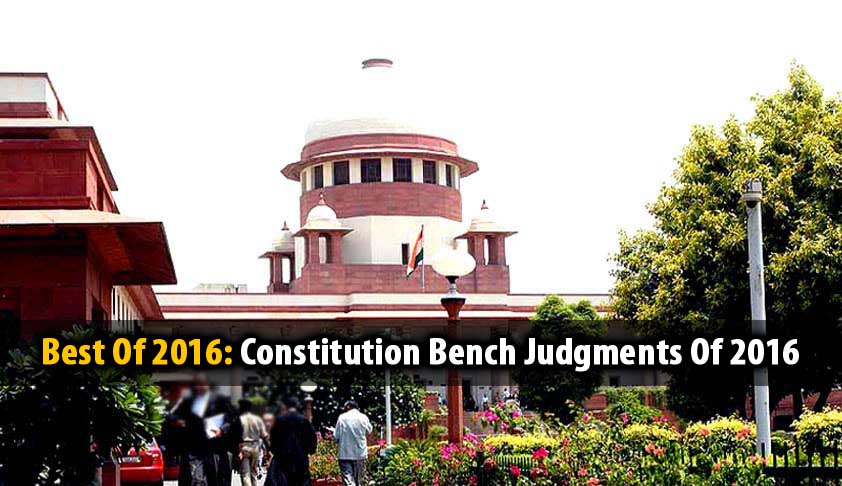- Home
- /
- Top Stories
- /
- Best Of 2016: Constitution Bench...
Best Of 2016: Constitution Bench Judgments Of 2016
LIVELAW NEWS NETWORK
2 Jan 2017 9:53 AM IST
Nine Constitution Bench Judgments were rendered by the Supreme Court of India in 2016.Entry Tax on Goods constitutional [Jindal Stainless Ltd. vs. State of Haryana]Nine Judge Constitution Bench upheld the constitutional validity of Entry Tax imposed by States on goods coming in from other states. The Bench also directed the three Judge Bench to decide whether the States’ entry tax laws on...
Next Story



